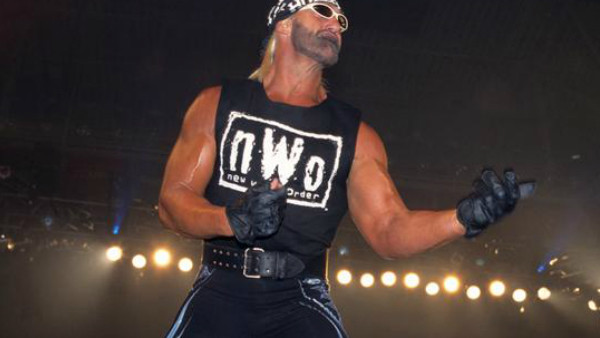The True Story Behind WWE's Deal With Marvel

Those profits would have been even greater had WCW, in a notably rare example of business acuity, shrewdly began promoting Hulk Hogan as 'Hollywood' Hogan following his switch to the dark side in 1996. Whether this was chance or design isn't clear, but one way or another dropping the 'Hulk' forename relinquished the Atlanta company of the requirement to pony up on the nWo leader's matches.
WCW had reason to spite Marvel: in December 1991, Brad Armstrong's 'Arachnaman' gimmick was hastily canned when the Spider-man creators noticed some quite striking similarities between their wall-climber and WCW's. Mostly that they were entirely identical.
Oddly, just four months on, Ted Turner's organisation embarked on a partnership with the company resulting in the prosaic WCW: World Championship Wrestling comic. The run lasted just 12 issues. Two years earlier, putting enmity aside for the sake of cash - always the great equaliser - WWF joined the strip club, with the license extending to see the litigious fulcrum appear alongside his legitimate, green namesake for issue #45 of Marvel Comics Presents.
The same year, by some freak coincidence future Marvel artist Jim Jarmusch was commissioned with designing another of WWF's most iconic characters, asked to provide concept sketches for a new Western mortician gimmick trading under the name 'The Undertaker'. Fittingly, Jarmusch would also pen the wonderful illustration depicting WWF's own Captain America, their specific Not Incredible Hulk, promoting his patriotic tussle with Sergeant Slaughter at WrestleMania VII.
Hogan's flag-bearing poster and crossover into comics emphasised the striking similarities between the world of spandex-clad superstars and spandex-clad superheroes - a prevailing feeling which almost certainly encouraged Marvel into action in the first place. They couldn't afford to see WWF's larger-than-life characters take precedence beyond their own, especially when they had literally stepped out of the page.
It paid off. By the time the licensing arrangement finally ended in 2005 - with Hulk Hogan just about still active - Marvel were on the cusp of embarking on their own entertainment revolution. There'd be no reprisal on WWE's part; from that point forth, they'd have to feed on whatever Batista-shaped scraps fell their way.